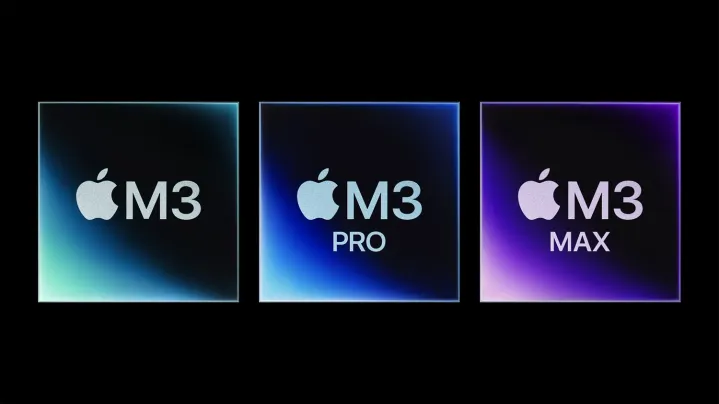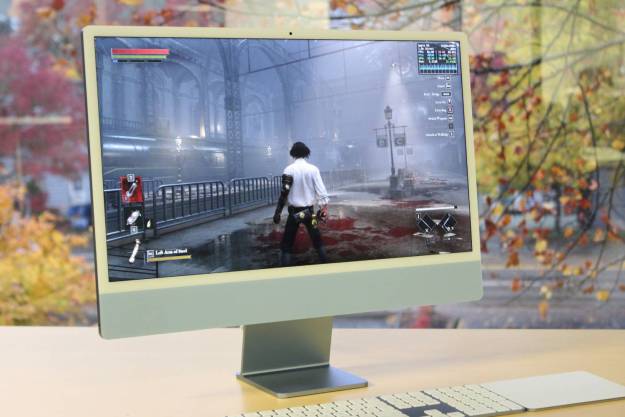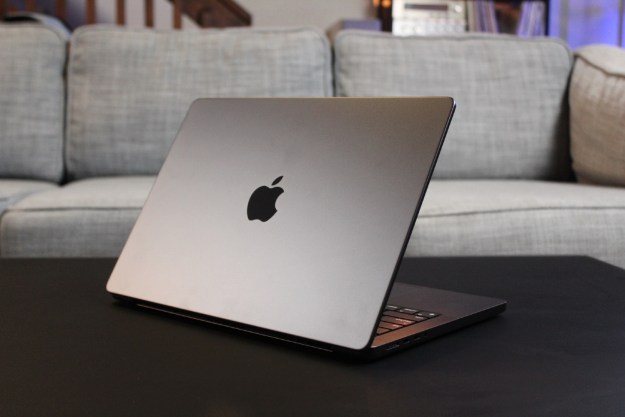There’s no doubt that the introduction of new M3 chips was the main event at Apple’s Scary Fast show. Yet, it looks possible that the M3 Pro might actually have a significant downgrade compared to the Apple silicon chips that came before it.
Apple explained that the M3 Pro chip in the 16-inch and 14-inch MacBook Pro is up to 40% faster than the M1 Pro in the 16-inch MacBook Pro. Yet, as spotted by MacRumors, there are some situations where the latest chips actually look a little worse than their predecessors — at least on paper.

For instance, the M3 Pro comes with 150GBps memory bandwidth, which is 25% less than the 200GBps found in the M1 Pro and M2 Pro. One variant of the M3 Max, meanwhile, has 300GBps memory bandwidth, while its M2 Max equivalent comes with 400GBps.
Because Apple spent most of the show comparing the M3 chips to the M1 series, it’s hard to actually know how much of a difference in performance there will be over the M2 chips. It’s possible that Apple’s comparisons mask a lower performance leap over the M2 than had been hoped, or that improvements elsewhere make these downgrades less relevant.
Waiting for real-world testing

The reduced memory bandwidth is not the only way the M3 Pro has changed versus what came before. Apple has tweaked the core configurations so that the M3 Pro with a 12-core CPU comes with six performance cores and six efficiency cores. The 12-core M2 Pro, though, has eight performance cores and four efficiency cores.
There’s another thing to consider. Every M3-series chip comes with a 16-core Neural Engine, just like the A17 Pro in the latest iPhones. However, while the A17 Pro’s Neural Engine can perform 35 TOPS (trillion operations per second), the M3 maxes out at 18 TOPS.
It’s unclear if any of this will actually be a problem. It could be that the performance cores in the M3 Pro are more powerful than those in the M2 Pro, so Apple doesn’t need to pack as many of them in. Similarly, Macs might be able to hand off more processing to the GPU than an iPhone can, meaning the Neural Engine doesn’t require as much power.
Ultimately, we won’t know for sure until we get the latest MacBook Pro models in for testing. Until then, we’ll have to keep our fingers crossed that the gains from the M3 chip are as impressive as Apple has claimed.
Editors' Recommendations
- Why Apple’s M3 Ultra could be an absolute monster
- Why gaming on the M3 MacBook Air has left me impressed
- I’m a laptop reviewer, and I can’t wait for the new Windows on ARM laptops
- Everyone who should (and shouldn’t) buy the M3 MacBook Pro
- Here’s how the M3 Max chip compares to the most powerful Windows laptops




